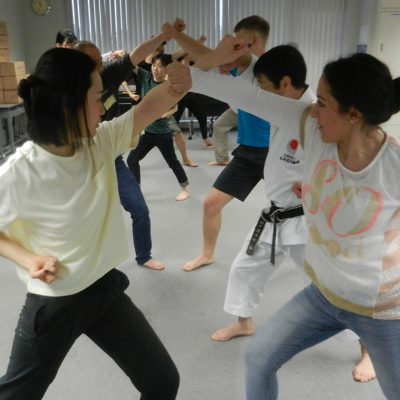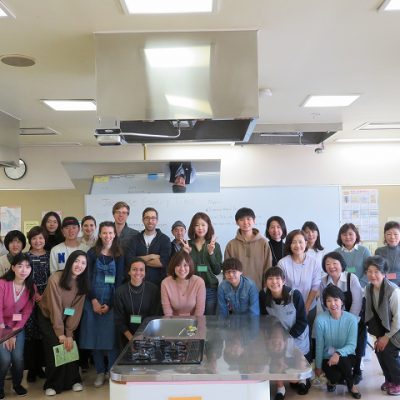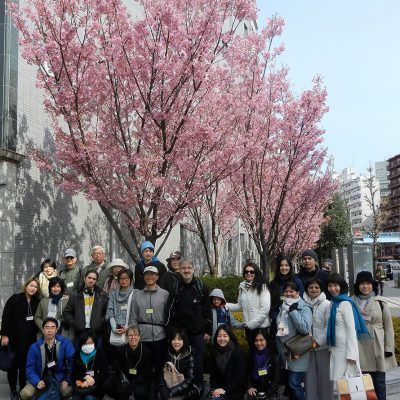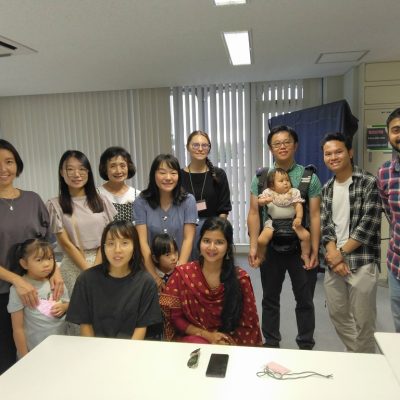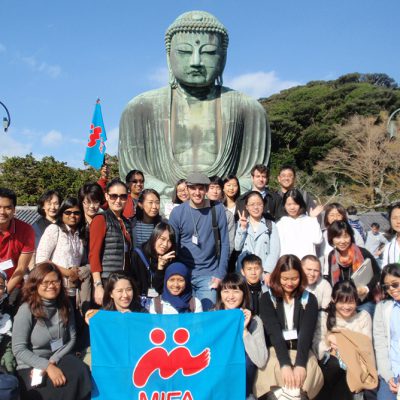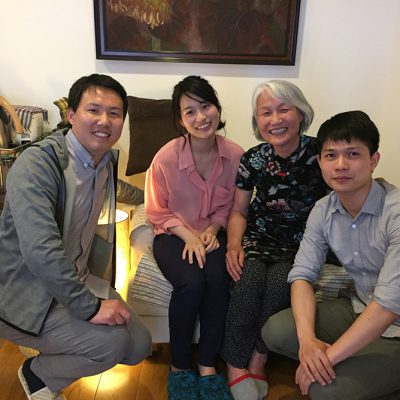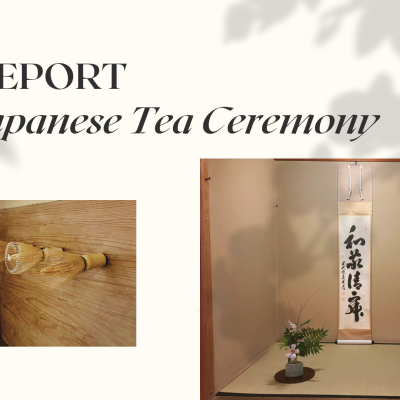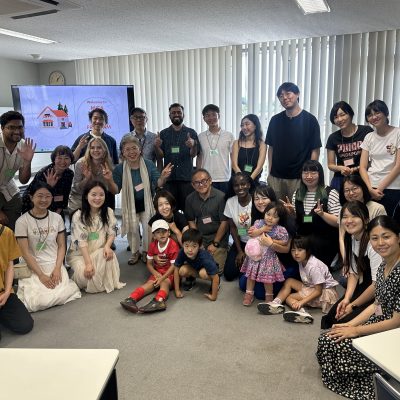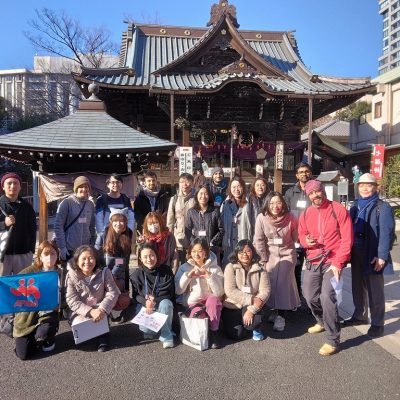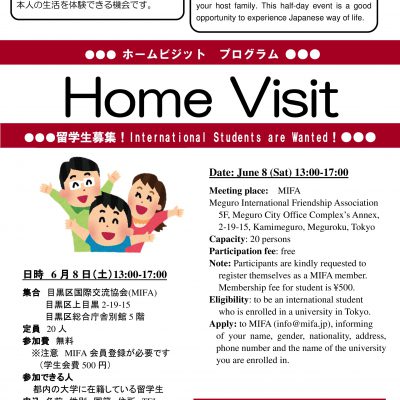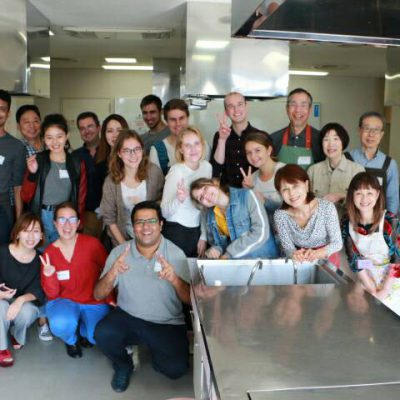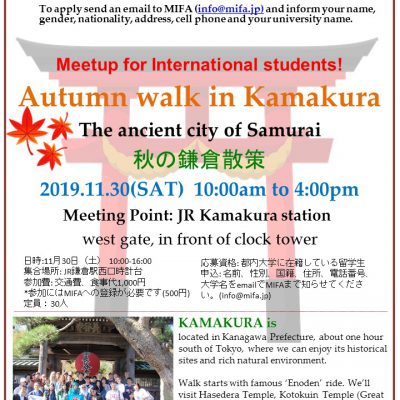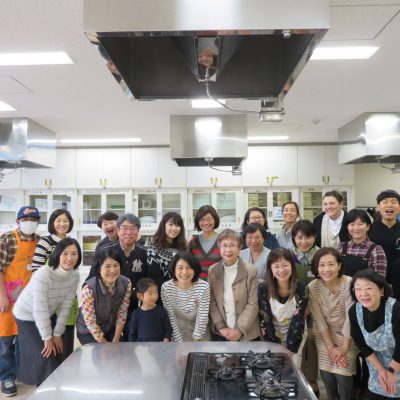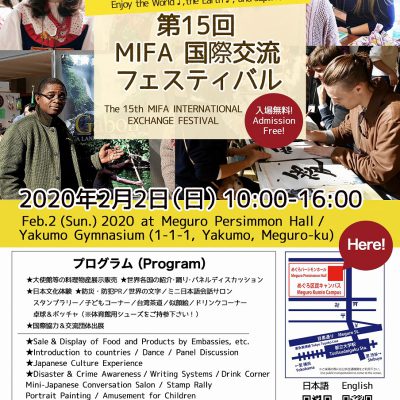Time: 13:00-15:00 on Sept.14 (Sun.), 2019
Venue: MIFA
Attendee A (from India; currently not working
Attendee B (from India; Master student at a university)
Attendee C (from USA; researcher)
Attendee D (from MIFA)
3 in total (India*2 USA*1) plus a MIFA staff member
Content
1.About Saturday TalkCafe(MIFA)
D: Discussion in English is to take place in order
to search suggestions useful to promote multicultural
cohabitation. The suggestions will be presented
at a panel-discussion at the 15th MIFA International Exchange Festival.
2.Culture Shock
A: Kids look at us like strangers. You should not talk to strangers.
But how can you change their attitude to foreigners?
B: I find kids see me on the train, they go close their eyes.
It is more a child psychology that a cultural thing.
If they see someone with different facial features,
this is a stranger they have been told about.
C: I was a volunteer at an elementary school.
I don’t know who organized it, but I think it was a good program.
There are 15 foreigner volunteers to go and talk to 1st and 2nd graders.
This was not a formal presentation. They interact with students,
dancing with kids, singing with kids, and teaching kids
what they do in their home countries.
They do not understand formal presentation, but students get used to foreigners.
3.Language
A: Language is another problem. When you buy things at shops,
not much communication is needed. If you cannot understand the product,
however, you do not understand as they understand only Japanese.
B: My friends speak English but not so much. When we are on a trip,
if someone says something funny and everyone is laughing,
so I say “what’s happened?” In case I find something funny,
but the time I am unable to tell everyone, it’s lost in translation.
B: The meetings in my lab are in Japanese. The number of international students is less,
and among the international students I’m the only one who does not understand Japanese.
They have lived in Japan for six to seven years, who are Koreans or
Chinese who understands kanji and everything.
I can neither understand spoken or written Japanese. They say, “You are google-translated.”
They assume that I probably manage. So unless it’s officially imposed
that this lab is going to work only in English, the situation will not change.
It is assumed that International students can manage the language problem.
A: Are there lectures by teachers?
B: I choose English lectures. If it is a lecture in Japanese,
I ask for handouts in English so that I study on my own.
C: What percentage of classes are offered in English?
B: That’s pretty less. At each semester my department offers four classes in English
out of 30 classes in total. So I have to take classes of other departments
that are relevant to my course.
A: The main issue is language. Foreigners should learn Japanese,
not that Japanese should learn English. English is a common language,
but those who come to Japan should learn Japanese.
Meguro UNESCO has good Japanese classes and tuition is reasonable.
D: Are you picking up Japanese?
A: So much. I can read and write hiragana and katakana,
and I am starting to learn kanji. Before I came to Japan I didn’t know Japanese.
4. Japanese attitude to foreign people and culture
C: My general perception of Japan by foreign people is that
Japanese are not open to foreign culture, and it is getting even worse.
In the USA, Japanese students are a small population,
and it is getting smaller and smaller. They are less and less interested
in go overseas to study. It is disappointing that they are so indifferent.
A: I agree with you, but how are you going to tackle this issue?
It would be a hundred-year plan. The society has to be changed.
That comes from education.
5. Settling in
C: When renting an apartment, you have to pay 6-month worth rate.
You also need to find a guarantor. Real estate industries are archaic in Japan.
Application for ulilities like electricity, water is also unique.
Those are challenges I faced.
C: When opening a bank account, you need to prepare a stamp.
D: Do you think volunteers can help foreigners starting their lives in Japan?
C: Yes, for sure.
B: Every organization should have staff f;uent in the local language
who attend and help colleagues settling in.
D: When a foreigner registers himself/herself, a volunteer should help him or her.
C: It would be rewarding for volunteers themselves as they can obtain human touch.
D: Volunteers could be stand-by at MIFA.
A: Volunteers could give foreigners orientation every Saturday or Sunday.
or, once a month, or once a week. There will be interaction between them.
B: If a foreigners are given a SIM card that gives you all the necessary
information for setting in.
A: If foreigners could join a LINE group for news comers. You could ask
any question on LINE of a group.
C: MIFA should prepare a bulletin board. If you could post a question,
somebody can answer your question.
B: The administrator of those applications should be municipal.
D: Should MIFA prepare a bulletin board.
A: Yes. If it’s official, it is trustworthy.
D: Would you help to construct such check group / bulletin board ?
C: Municipality or MIFA takes responsibility to monitor it.
6: Publication
A: There are good publications but are they reached out to foreigners?
B: They are all good, but all too detailed. Brief explanation on an A4 size
will be enough. Summarized versions are important. Handouts are enough.
C: One paper checklist should be made. It should be put on a refrigerator.
B: A hHard copy is better than on the Internet or on the phone.
7. Disaster Preparedness
A: Every school and workplaces should join an earthquake drill.
B: When should I be alert and not? What is the threshold?
D: Even Japanese are unprepared. There should be drills for foreigners.
C: Doesn’t the city prepare drills for foreigners?
D: Announcements are not enough.
C: Foreigners should obtain information when they register themselves.
D: Do you have emergency food or water at home?
A: No.
C: This is a longer time proposal. You have to get disaster preparedness kits.
You have to prepare such kits, but they will never be used.
The city should recycle them for those in need.
You encourage people to obtain kits, and periodically recycle kits when
getting new ones.
D: We can make suggestions to the City Office. Also, MIFA itself
should prepare emergency stockpiles. At least 100 people worth food and water.
When they near expiration date, they should be distributed among staff.
C: Even if you want to pay a little, they would still want to buy it.
If you have such subscription services, at the same system, you recycle them,
you will have an automatic renewal.
A: If you make a ration system out of it, that will benefit people in need.
D: Did you notice anything unique when seeing disaster areas?
B: If everything is written in Japanese, foreigner will never understand them.
Municipal governments should prepare signs written in at least two or three
languages.
A: Radios are available only in Japanese.
C: Municipal notification is given in Japanese only.
D: Yes.
A: MIFA should inform foreigners of all such things in the orientation.
A: Drills should happen once in a while; otherwise we will forget what to do.

 Twitter
Twitter Facebook
Facebook Instagram
Instagram
